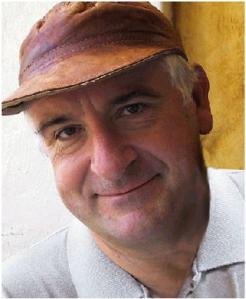The First Douglas Adams Memorial Lecture
Created | Updated Apr 15, 2003

On 11 March, 2003, the Royal Institution in London hosted a very special event - the first-ever Douglas Adams Memorial Lecture given by Professor Richard Dawkins in memory of Douglas Adams. Dawkins took as his title 'Queerer Than We Can Suppose: The Strangeness of Science', and the lecture reflects Douglas's deep love of the quirkiness of science, a recurrent theme that we can all recognise in his books.
We're very happy to be able to offer you the chance to view the entire lecture here on h2g2. The lecture is split into seven parts - seven RealMedia files - and the average length of each part is about seven minutes. To get RealPlayer, click here. Another useful help site can also be found here.
The lecture was held in aid of two of the causes Douglas felt most passionately about; the Dian Fossey Gorilla Fund and Save the Rhino International.
'Queerer Than We Can Suppose: The Strangeness of Science' by Richard Dawkins
Below, and split into seven sections, is the entire first-ever Douglas Adams Memorial Lecture given by Professor Richard Dawkins on 11 March, 2003.
- First Douglas Adams Memorial Lecture by Richard Dawkins - Part One
- First Douglas Adams Memorial Lecture by Richard Dawkins - Part Two
- First Douglas Adams Memorial Lecture by Richard Dawkins - Part Three
- First Douglas Adams Memorial Lecture by Richard Dawkins - Part Four
- First Douglas Adams Memorial Lecture by Richard Dawkins - Part Five
- First Douglas Adams Memorial Lecture by Richard Dawkins - Part Six
- First Douglas Adams Memorial Lecture by Richard Dawkins - Part Seven
